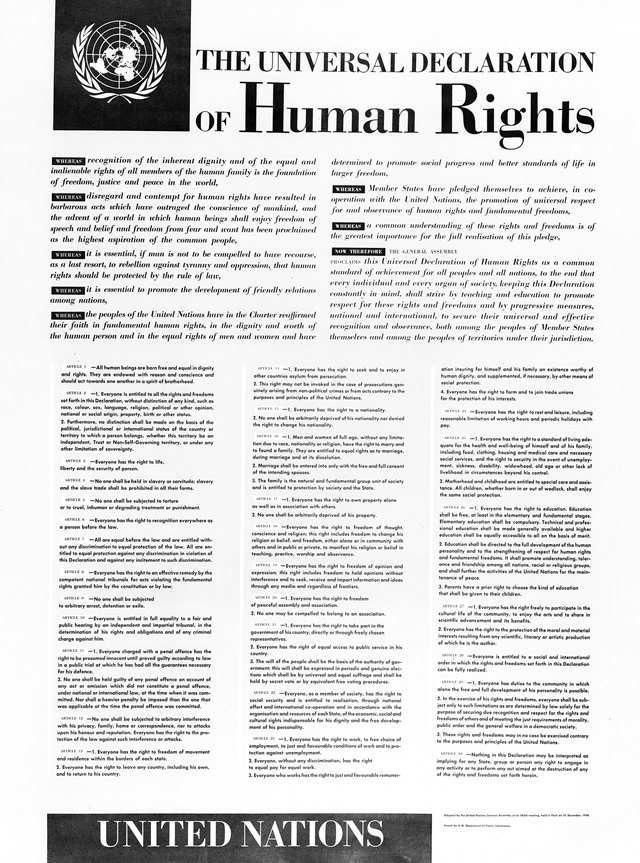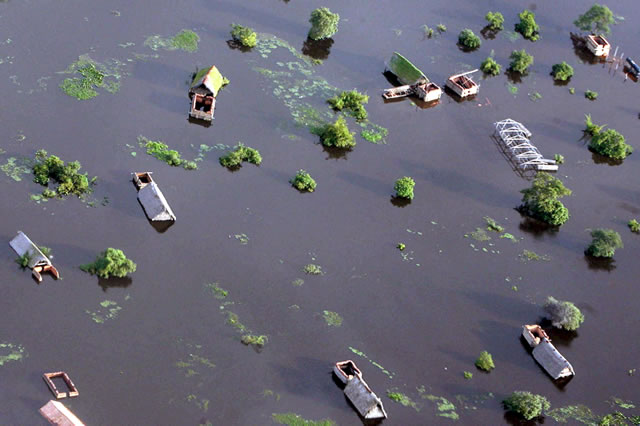This article by Mary Robinson was originally published on 10 December in Outreach - a multi-stakeholder magazine on climate change and sustainable development.
Therefore solving the problem requires countries and citizens to act in solidarity, motivated by enlightened and collective self-interest for a better future. We know that the impacts of climate change undermine the enjoyment of human rights. So our actions under the UN Framework Convention on Climate Change (UNFCCC) are important as the more they limit warming, the more likely we are to have an environment in which people will be able to realise their rights.
The human rights risks associated with climate change are of a fundamentally different nature than those posed by climate policy. If temperature increase exceeds 2°C, which becomes progressively more likely if climate action is delayed, the scale, severity and unpredictability of climate change would have profound impacts on human rights and pose an existential threat to countries and communities around the world. Meanwhile, there is good reason to believe that the risks posed to human rights by rapid climate action can be managed through a commitment to integrate human rights and equity in all climate policies and by designing policies to maximise the potential for positive co-benefits, including improved health, decent work, sustainable food production and access to renewable energy. After all, development is contingent on access to energy, not emissions.
Science tells us that in order to avoid the worst impacts of climate change and keep warming of the earth’s atmosphere as far below 2°C above pre-industrial levels as possible, it is necessary to phase out all carbon dioxide emissions by 2050. For a transition to zero carbon emissions to be successful and fair, all countries must undertake it together. This means we must act now, together.
A global phase-out can only work when it is done fairly. A climate justice approach which is grounded in human rights provides the framework necessary for success. In October 2014, 28 special rapporteurs and independent experts (known as special procedures) of the Human Rights Council wrote an open letter to the Parties to the UNFCCC to stress the fact that climate change threatens to undermine the protection of human rights, and that the UNFCCC has a crucial role in effectively protecting human rights for all. These UN Special Rapporteurs and Independent Experts urge Parties to “include language in the 2015 climate agreement that provides that the Parties shall, in all climate change related actions, respect, protect, promote, and fulfil human rights for all.”
Inclusion of this language in the overarching principles set forth in the operative paragraphs of the new agreement would help to ensure that the Paris Agreement results in equitable and ambitious actions that avoid dangerous climate change and protect human rights.

English version of a poster depicting the Universal Declaration of Human Rights. The Declaration was adopted and proclaimed by United Nations General Assembly resolution 217 A III of 10 December 1948.
A climate justice approach to reaching zero carbon offers our global society a unique opportunity to combat climate change and promote equity, while developing a social and international order in which the rights and freedoms set forth in the Universal Declaration of Human Rights are realised; a world everyone is entitled to.
66 years ago today the Universal Declaration of Human Rights was signed in Paris. The Member States of the newly-created United Nations proclaimed universal respect for human rights, acknowledging that every individual in the world was equal in dignity and rights.
The memorial service of one of our greatest human rights defenders, Nelson Mandela, took place on Human Rights Day last year. This year, as we gather in Lima for COP20 to negotiate a framework to deal with climate change, one of the greatest challenges to human rights of the 21st century, it seems right to remember his words:
“Overcoming poverty is not a task of charity, it is an act of justice. Like slavery and apartheid, poverty is not natural. It is man-made and it can be overcome and eradicated by the actions of human beings. Sometimes it falls on a generation to be great. You can be that generation.”
Related:
View article in Outreach Magazine
Incorporating Human Rights Into Climate Action
Zero Carbon the Climate Justice Way
Human Rights and Climate Justice Position Paper
UN Independent Experts: Open Letter on Human Rights and Climate Change


